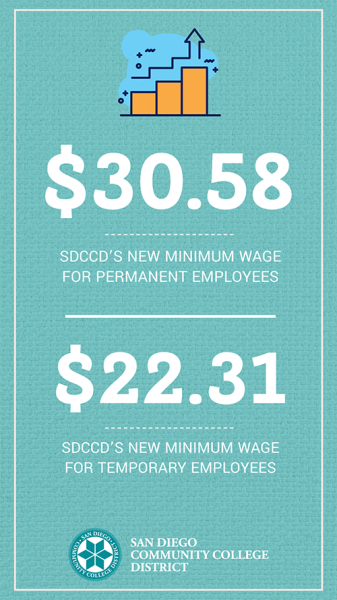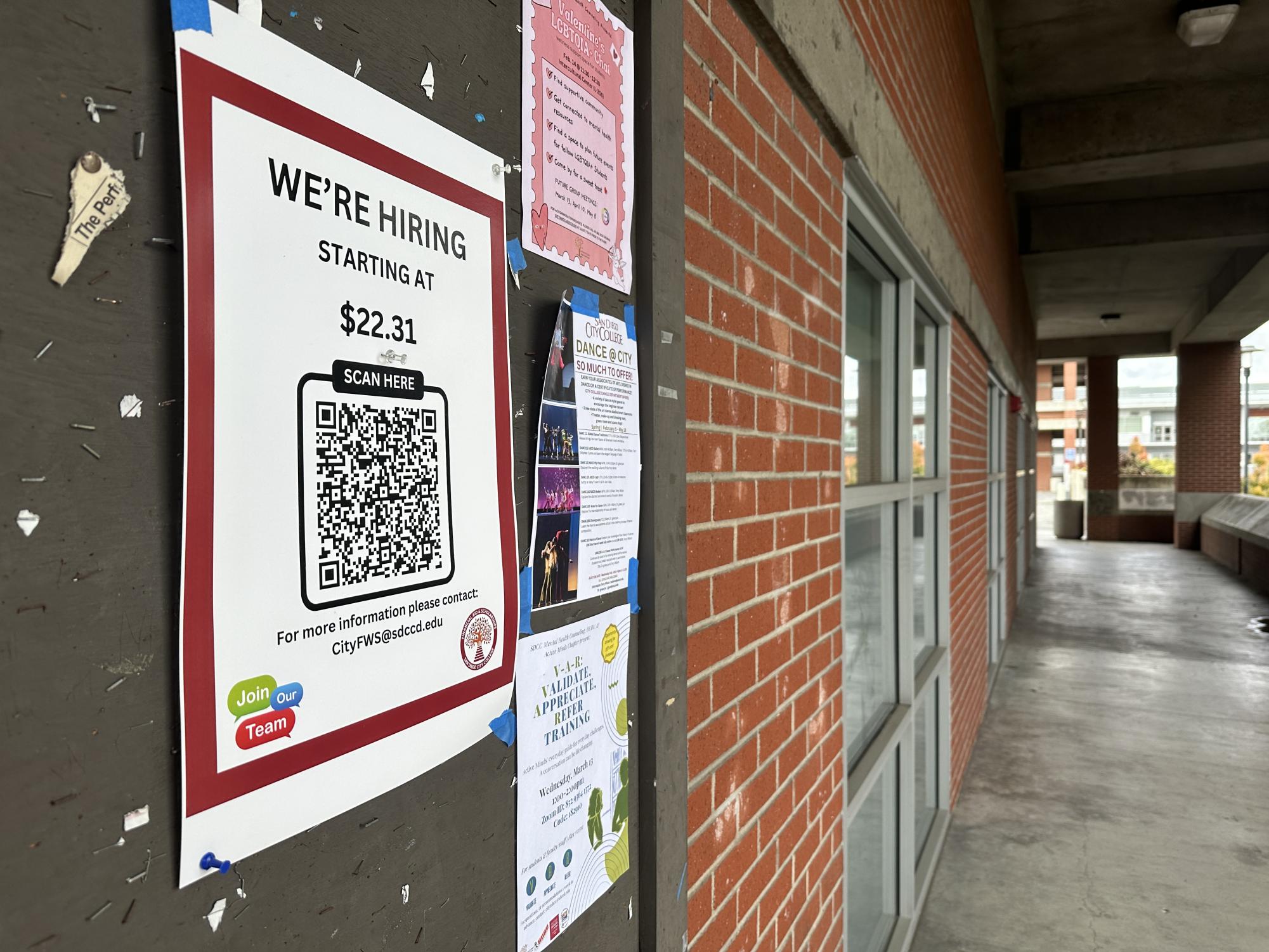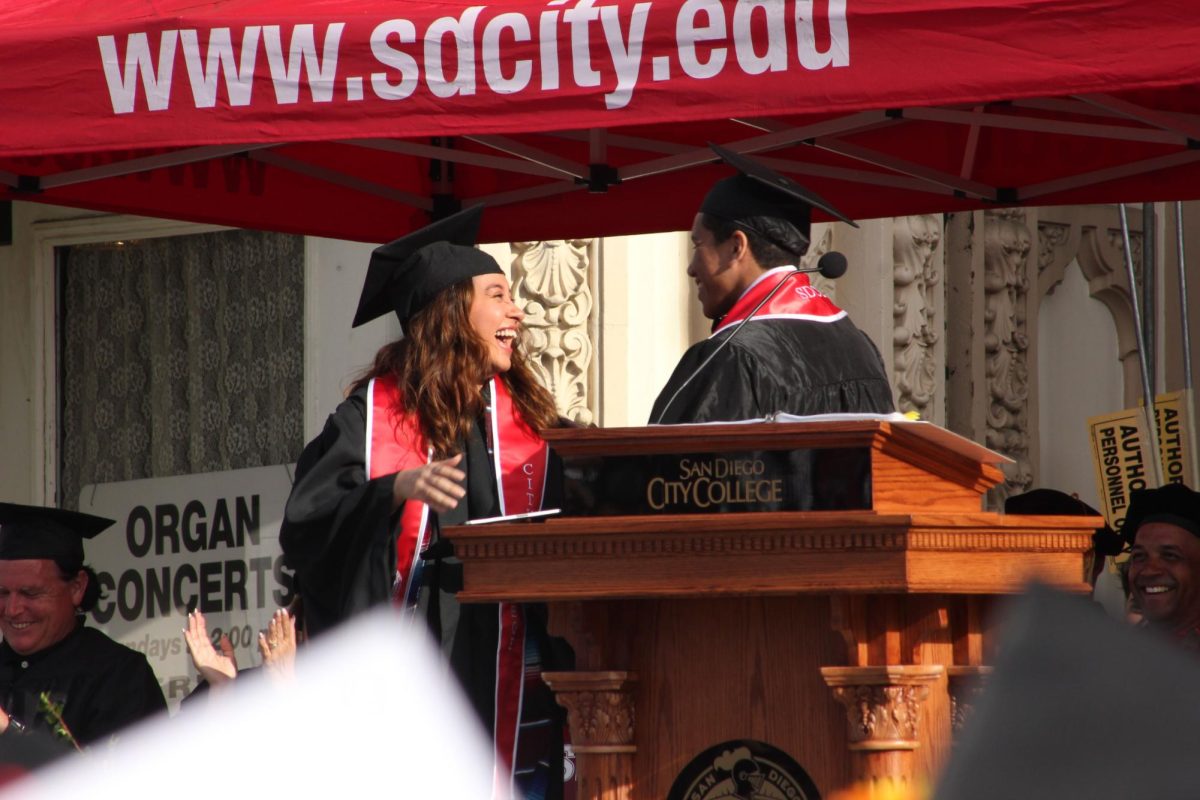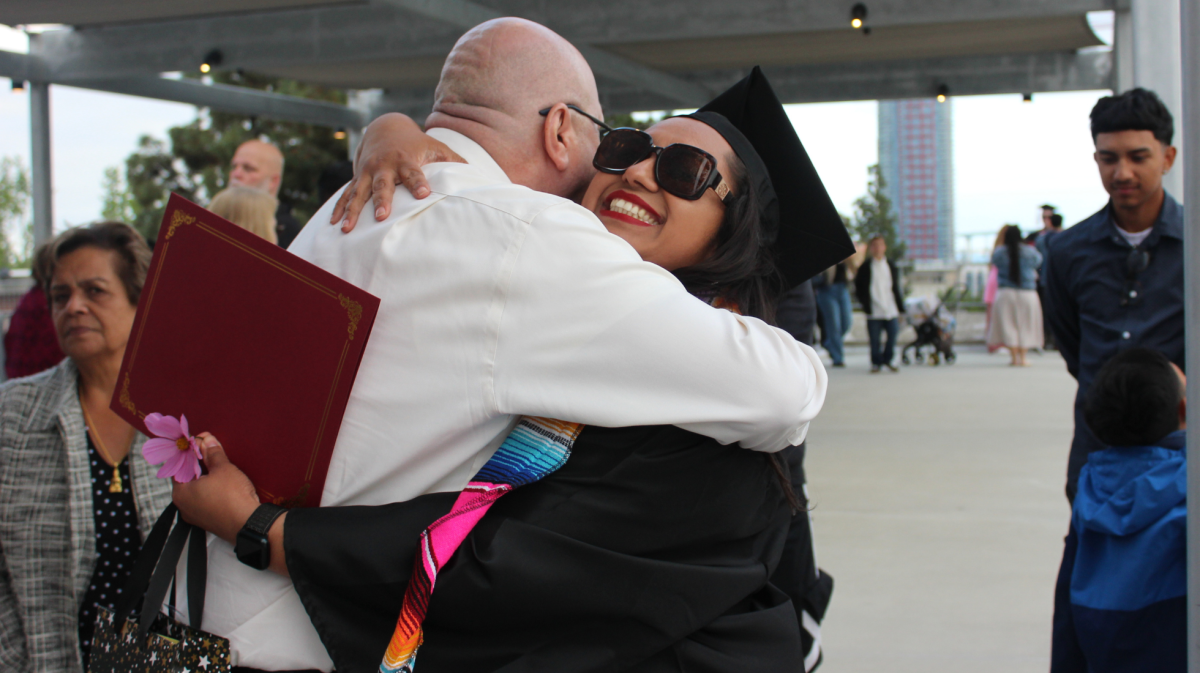Making ends meet was getting difficult for Mark Payne, as his salary couldn’t keep up with San Diego’s rising cost of living.
“The last few months, I ran out of money,” said Payne, who’s been a custodian at San Diego City College for four years. “I had to use my credit card a few times.”
That changed Jan. 1 when the San Diego Community College District announced that it would be raising the wages of its lowest-paid employees.
Payne said the extra funds will help pay off some bills and live more comfortably.
“Groceries keep going up, gas is going up. So with this raise, I’m not going to have to worry about that,” Payne said. “Most of us aren’t going to have to worry about that.”
Classified employees will now make $30.58 per hour and temporary employees will make $22.31 per hour.
The salary levels are based on MIT’s Living Wage Calculator, which determines the minimum wage someone must earn to live in a county based on the cost of living.
According to the calculator, the minimum living wage for one partner in a dual-income household raising two kids living in San Diego is $30.58. A living wage for a single adult with no dependents is $22.31.

In a press release announcing the pay structure change, SDCCD Chancellor Greg Smith said, “On our classified structure, we have 35 pay ranges. Ranges 1-13, the entirety of the range all the way out to the final step, was below estimate.”
Salary schedules contain the range of wages an employee can be paid based on their position and how long they have been assigned to it.
The recent pay raise collapses the bottom 13 pay ranges for the lowest-earning positions in the classified salary schedule, bringing all employees up to a living wage.
Smith said the issue had been on his mind since he was Vice Chancellor of Human Resources, but he was unable to put something into practice until this year when the district received a larger than average Cost of Living Adjustment (COLA) from the state.
COLA is a state funding increase to colleges to keep up with the cost of living. This year’s COLA was 8.22%, around 24 million dollars, a larger amount than usual according to Smith.
“These are really only once-in-every-twenty-year type events. So we have to seize the moment when the moment presents itself,” said the newly appointed chancellor.
The plan was considered and approved last fall by district faculty union AFT, the SDCCD Police Officers Association, and the district’s meet and confer groups.
Professor Kelly Mayhew, the Vice President of Faculty at AFT 1931, which negotiated the increase, credits Smith with pushing the raise through.
“What was really wonderful was that this was initially the idea of our new chancellor Greg Smith,” Mayhew said. “We’ve never had a chancellor who proposes raising the wages of our workers well beyond the floor of any district in San Diego.”
She hopes increasing the pay at SDCCD will pressure other districts to do so as well.
“If we are the advanced guard, others are going to have to follow,” Mayhew said. “Good people will seek out our jobs, our jobs will become much more desirable.”
To Smith, the decision was rooted in the values of social justice. While working for the U.S. Department of Labor, he observed how income inequality disproportionately impacted marginalized communities.
“Salary disparities, wealth inequality in America are largely because of legal discrimination for the majority of our history,” Smith said. “At some point we have to stop participating in that system.”
He said it should also help SDCCD attract high-quality employees in a tight labor market.
“We continue to see so many organizations that are having a really hard time hiring people right now and we’ve been in that same boat,” Smith said, “(The raise) should really help us be highly competitive across the occupations that are directly impacted by this.”








